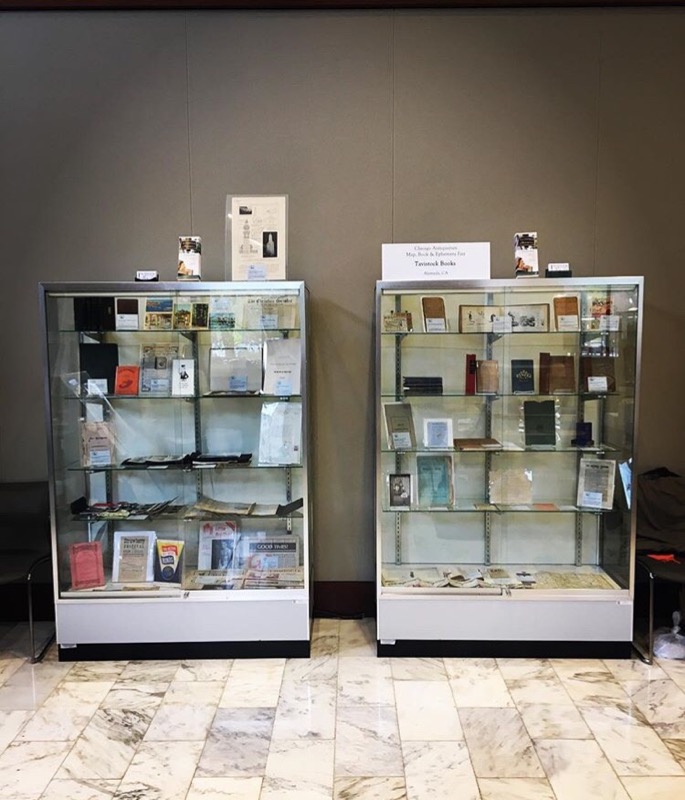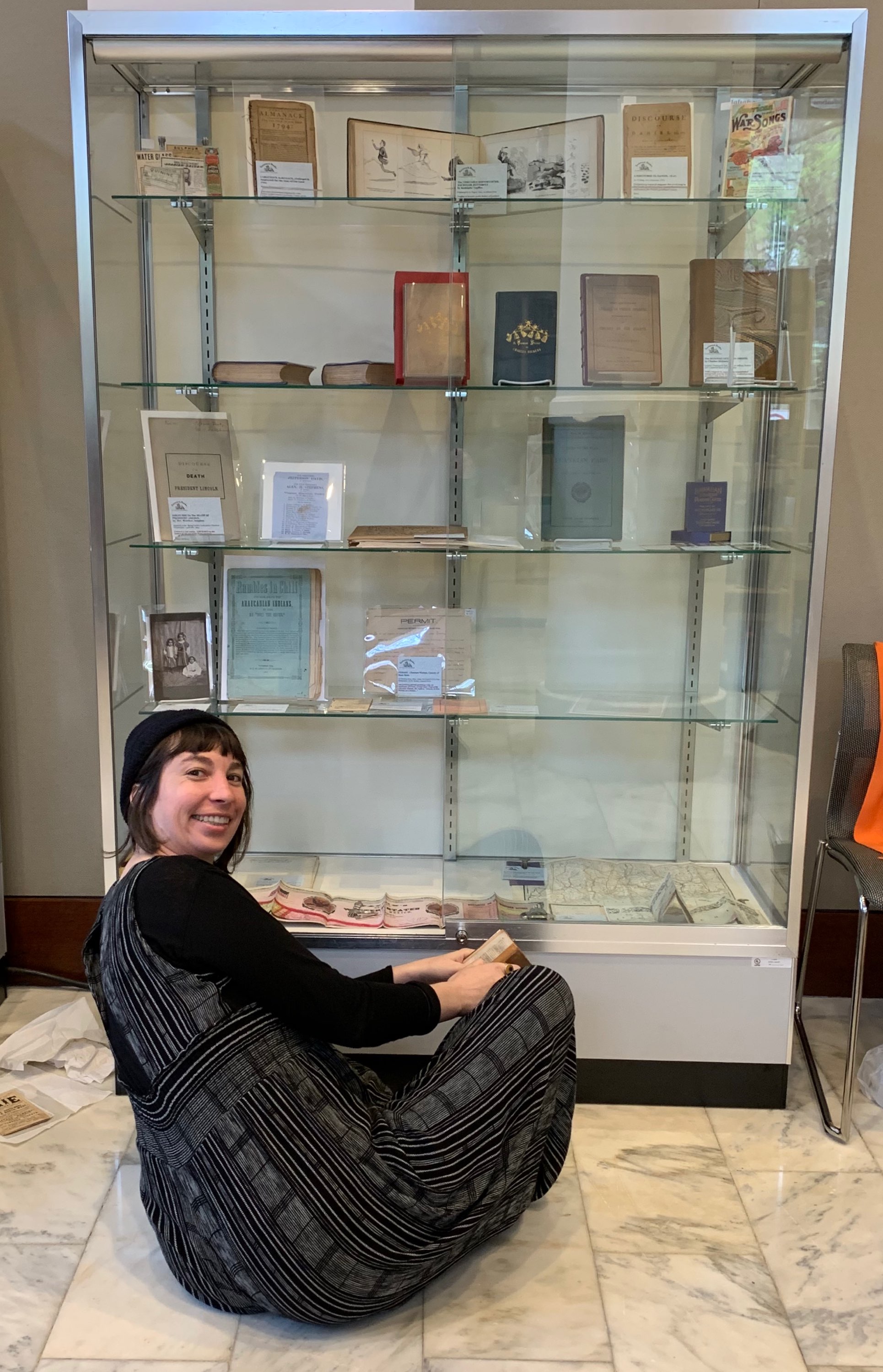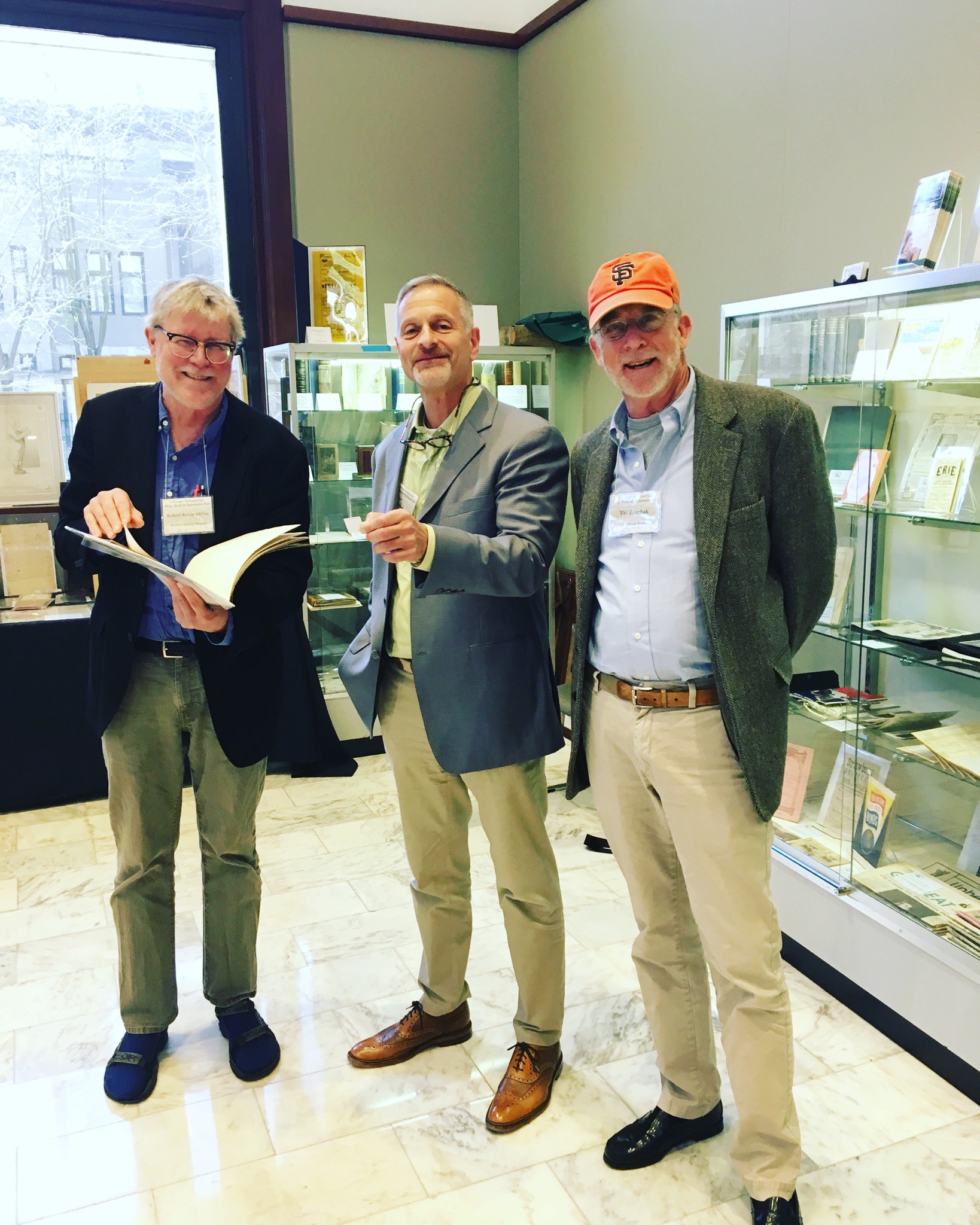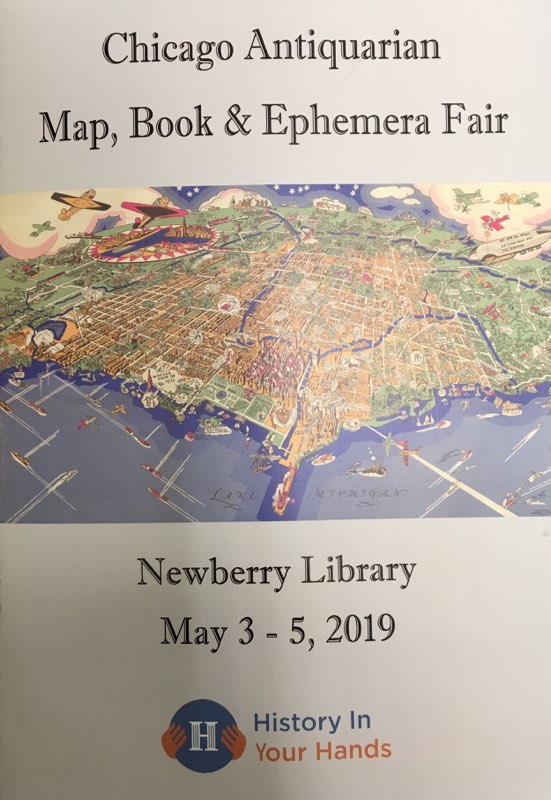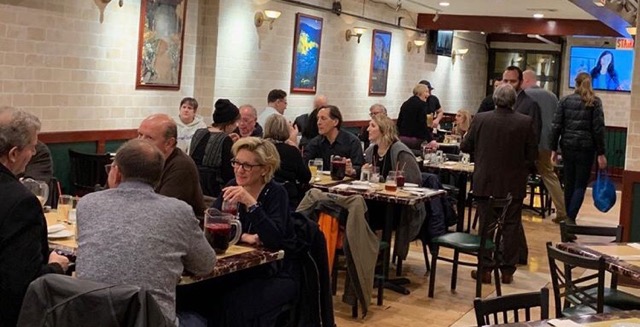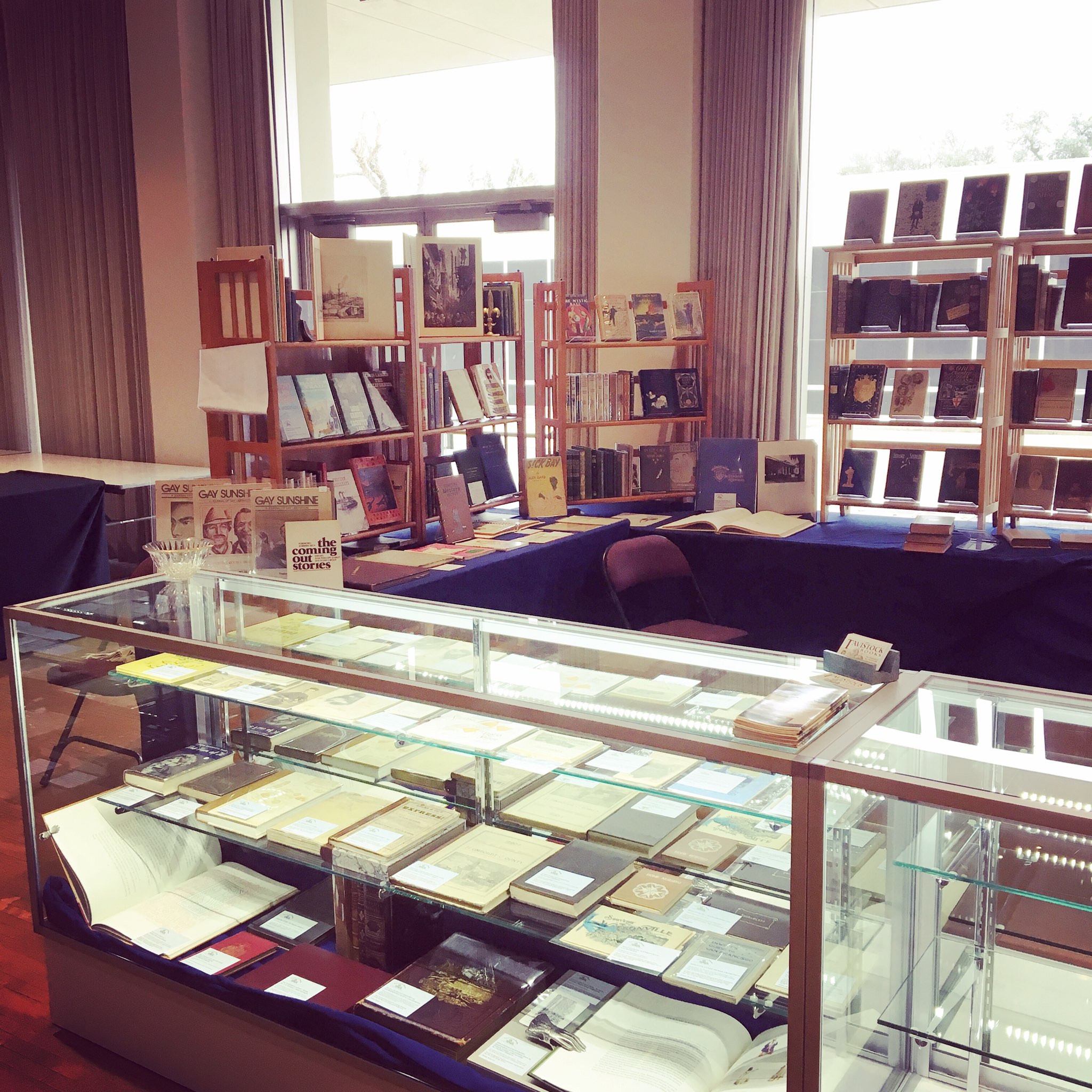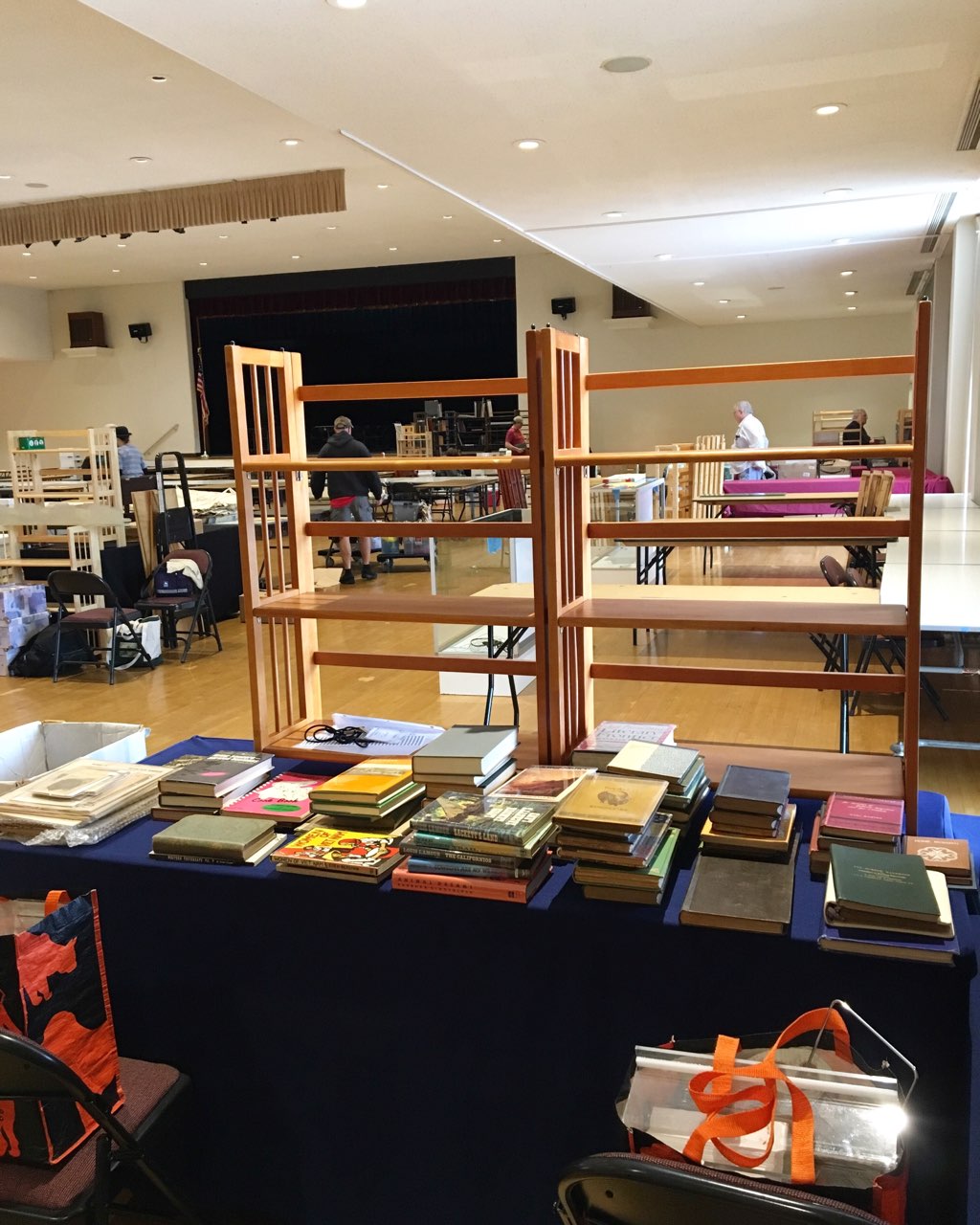This past weekend saw the 53rd California International Antiquarian Book Fair held in Pasadena. We gave Vic and Samm a few questions to ruminate on while experiencing the fair and their responses don’t disappoint! This fair was also a bittersweet occasion as our Master & Commander Vic Zoschak Jr. ended his two year tenure as President of the Antiquarian Booksellers Association of America (or the ABAA) while there. See how they felt about the state’s biggest book fair below!
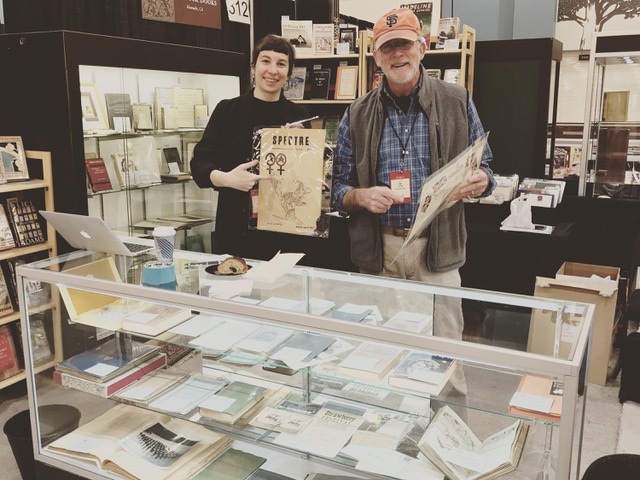
Q: So another year, another ABAA fair! How did you two feel going into this 2020 Pasadena Antiquarian Book Fair (or the 53rd California International Antiquarian Book Fair, to be precise)?
V: Actually, we took a beating at fairs in 2019, so there was a bit of trepidation as we approached this first one of 2020. Nevertheless there never was any question as to whether we would exhibit, as it’s the ABAA California fair, and I want to support our local chapter’s efforts.
S: As Vic mentioned above, our fairs in 2019 were rough to say the least. I, too, was a bit “on edge” about how things were going to go – after all, book fairs can make or break your month, or even your season. Luckily though, this book fair – first of the new year – was a great start!
***
Q: What all did you focus on bringing this year? How were sales?
V: There were two themes for the fair: celebration of the vote for women, and Ray Bradbury. We focused on the former, and everything found in our booth had some connection to women, be it as author, illustrator, character, printer, owner, or whathaveyou.
Happy to report sales were steady throughout the weekend, though without that one [or more] blockbuster transaction that would have propelled us into the ‘excellent fair’ category. But compared to 2019 fair results… night-n-day.
S: I would say our booth was 90% items by women – which we really enjoyed putting together as a tribute to this year’s fair theme, celebration women’s suffrage. Though of course we could not leave out our main man, Charles Dickens, and found a way to incorporate him into our mix as well!
***
Q: How would you say this Pasadena fair equates with previous Pasadena fairs?
V: Better, see above.
S: Once again, I must agree with Vic. It was better. We also tried something new this year – as we had two main, lighted display cases – which while beautiful can also make people feel a bit too timid when it comes to inquiring about an item. Therefore, we also had several boxes of items in mylar sleeves out in our booth. People seemed much more intrigued by this concept as they were able to flip through and pull items out and touch them in a more accessible manner. I truly believe this helped make our booth a bit more “shoppable”.
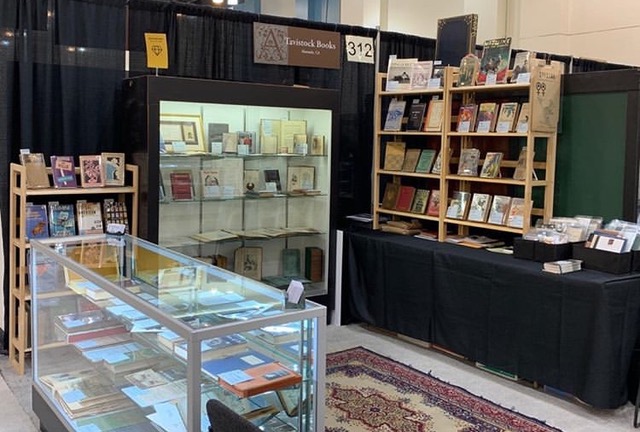
***
Q: How would you say it holds up in comparison with the Oakland fair? Obviously the Oakland fair is a bit easier for us, but in terms of customers and purchases is there a markable difference?
V: Well, this a difficult comparison… I think our Pasadena booth location this past weekend contributed significantly in our results. Our Oakland location was not so positioned. We’re hopeful for 2021 this changes, especially since, in 2021, John Knott & Tavistock Books plan to have adjoining booths, where we’ll open things up & have a larger, more visible footprint in the aisle.
S: Yes, a comparison between the two is a bit tough as, especially for us locals the Oakland fair is much easier! We are able to bring more items… and I can sleep in my own bed (huge plus)!

***
Q: Samm, how was this Pasadena fair for you? This is your second ABAA fair, right? What was your favorite experience down in Southern California?
S: Set up went relatively quickly, so I had some free time to go to the norton simon museum with a colleague! sometimes its good to break away for a bit. but overall the fair was good, met and chatted with several new institutions about what collections they are building and how we can assist. there were some critiques i was hearing from others but i felt it was a really nice fair and a lovely time down in Pasadena!
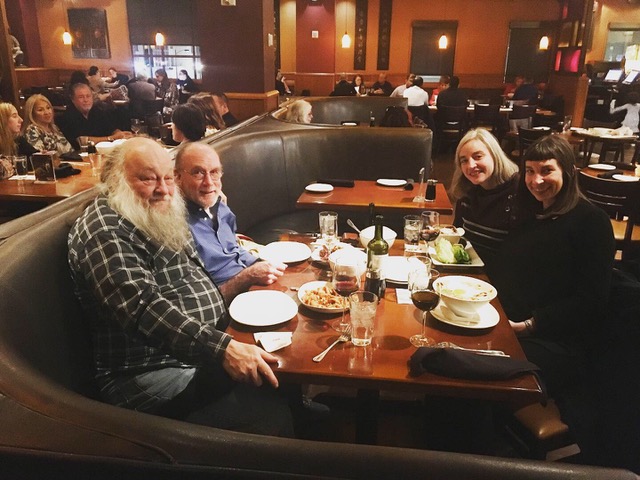
***
Q: Vic, how did you feel heading towards the end of your Presidency of the ABAA? Did that play any part in this fair?
V: Yes, my term as President concluded with the ABAA’s Annual meeting this past Sunday morning. As President, I feel like I personally experienced aspects of Einstein’s Theory of Relativity [as I understand it], which is to say, the two years went by in a blink of an eye, but some days dragged on interminably! lol
My successor is Brad Johnson, in whom I have unwavering confidence that he will successfully meet all the future challenges the Association may face. And let me again, in this forum, give a shout-out to Brad, who tremendously surprised me with a parting gift… a San Francisco Giants jacket!* OMG, I was blown away. Brad, thank you!
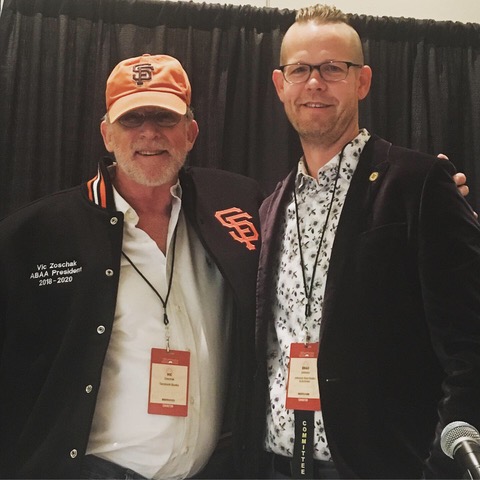
***
Q: What’s next on the agenda for you both? Perhaps some to catalogue, we hope!
V: To be honest, I’m not sure what I will do with the time I regain in my schedule… maybe catch a few more Giants games while sporting my wonderful new jacket! 🙂
S: And while Vic is enjoying those Giants games, I will be working on a catalogue! Also, if you find yourself in the area next month, please come and see us at the Sacramento Antiquarian Book Fair on Saturday March 28th!
Thanks, you two! Samm is right… onto the next!
Some more photos from this year’s fair:
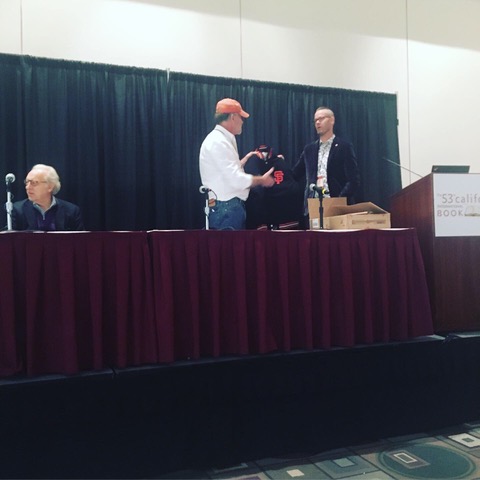
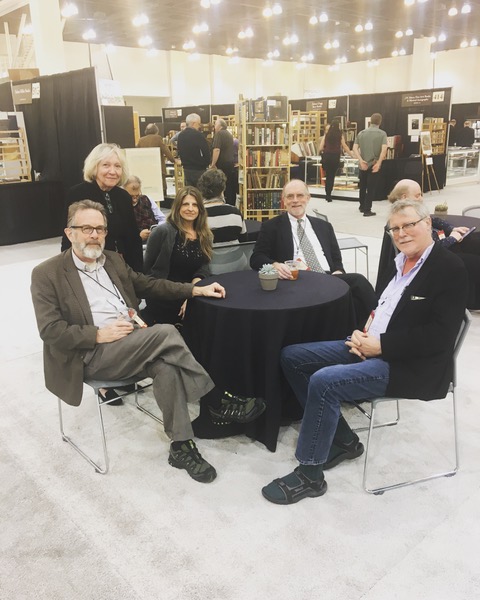
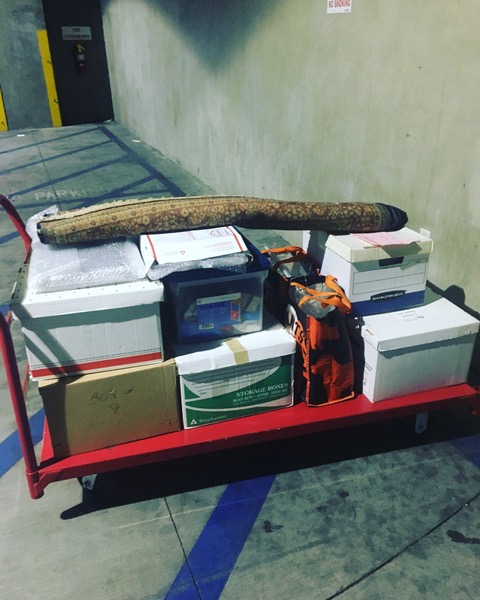
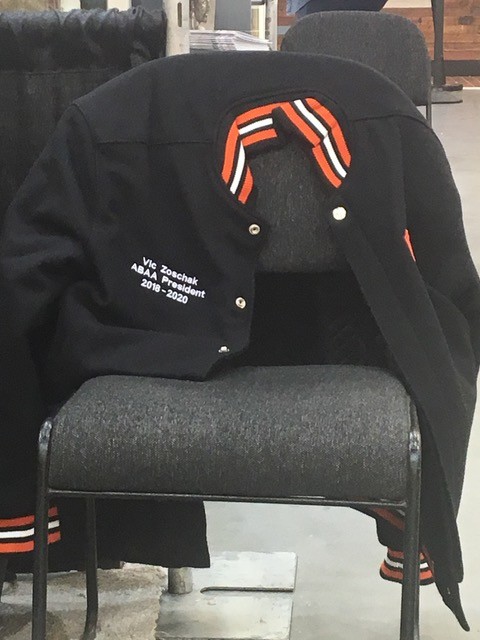
President out. (Cue mic drop.)


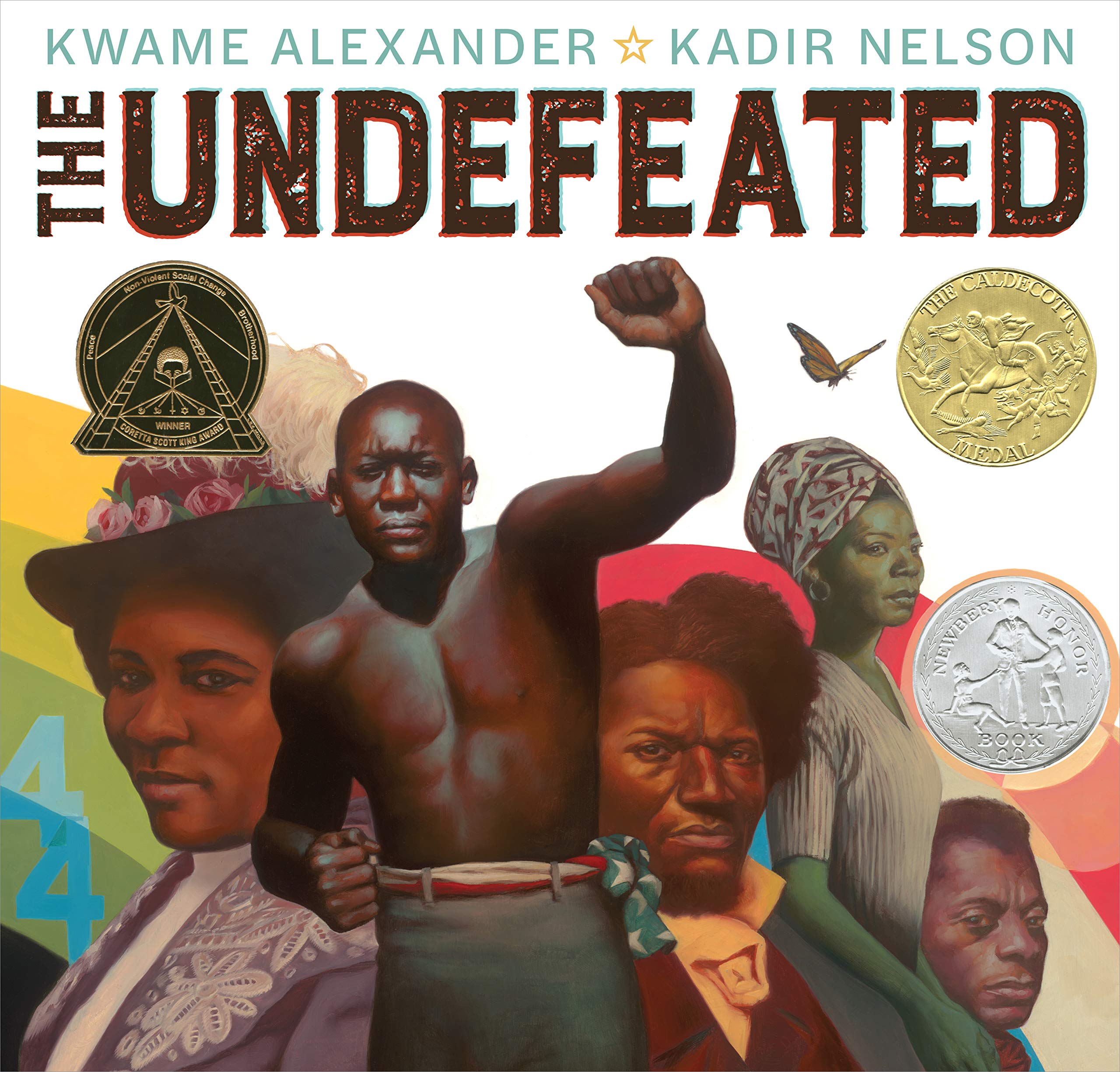
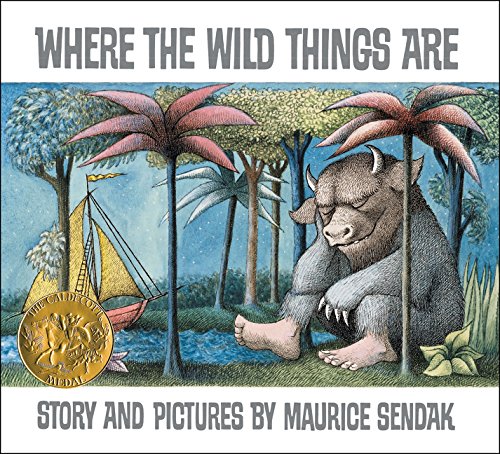
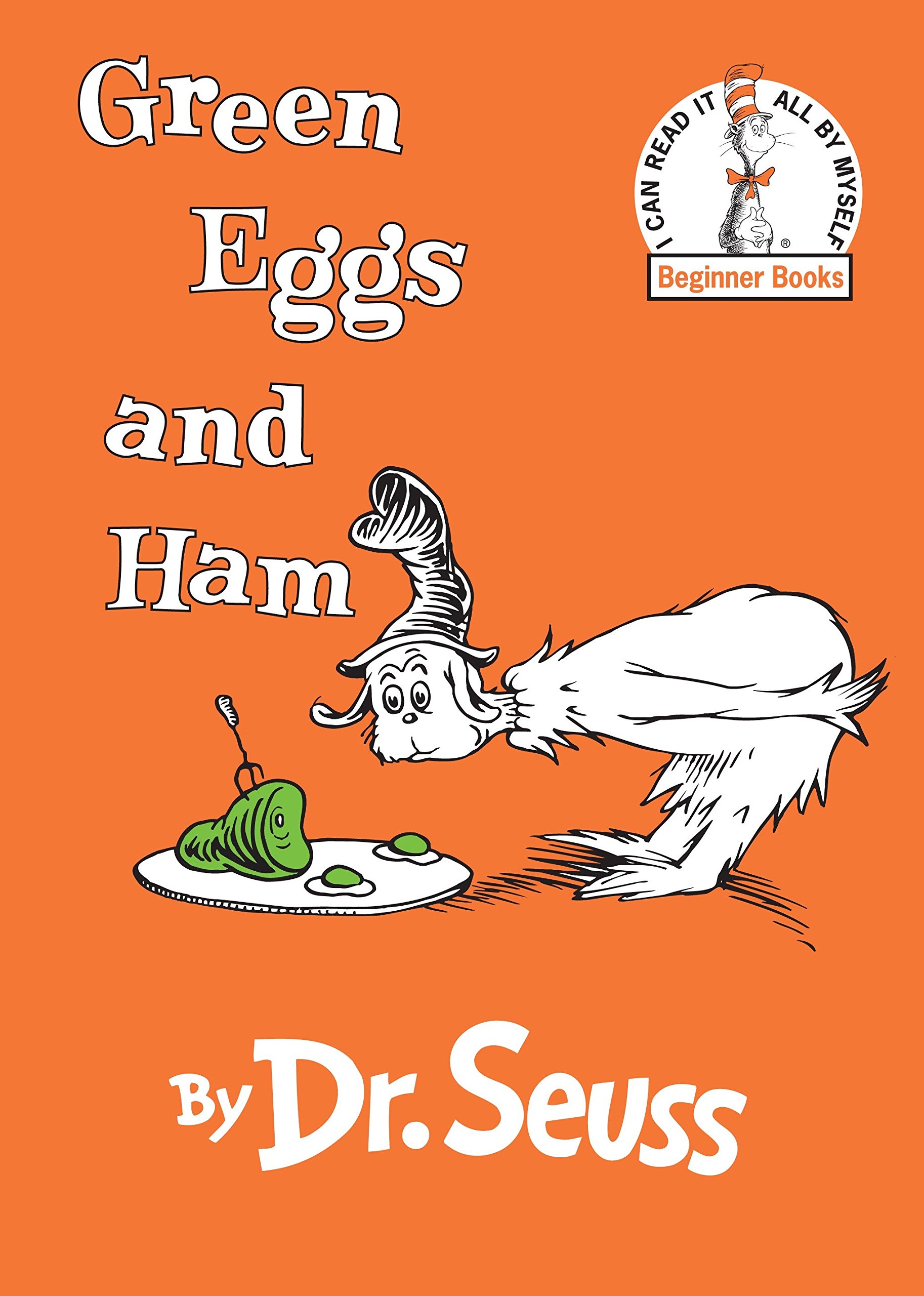
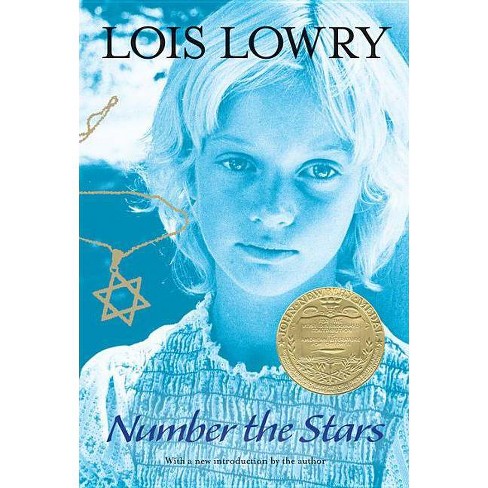
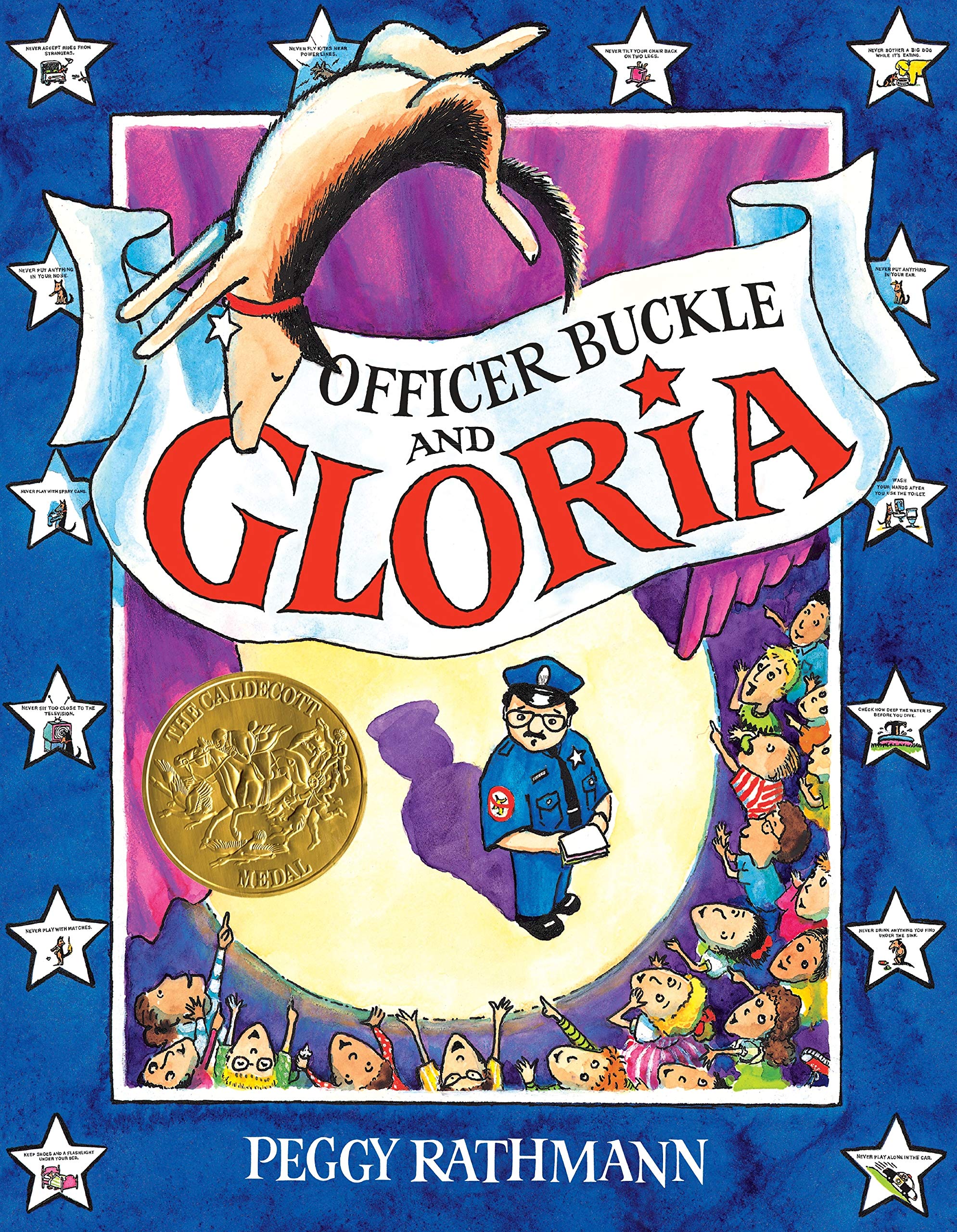

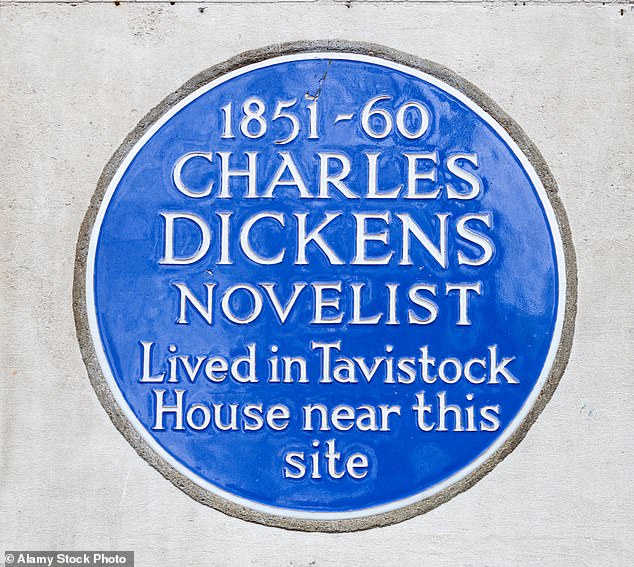 Yes, over the years, I’ve often been referred to as “Mr Tavistock”, but the name actually, rather than being my surname, has a [small] Dickens connection…
Yes, over the years, I’ve often been referred to as “Mr Tavistock”, but the name actually, rather than being my surname, has a [small] Dickens connection…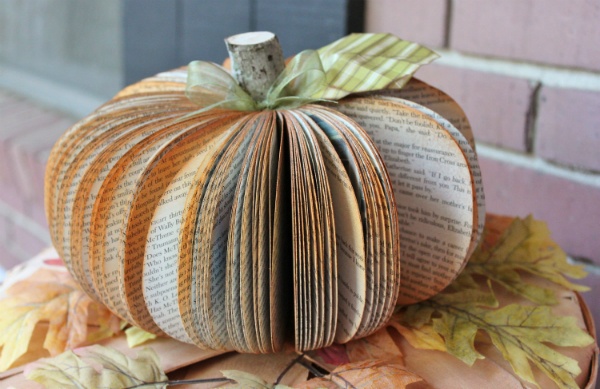
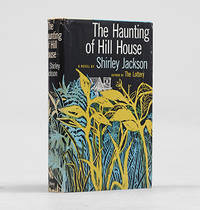

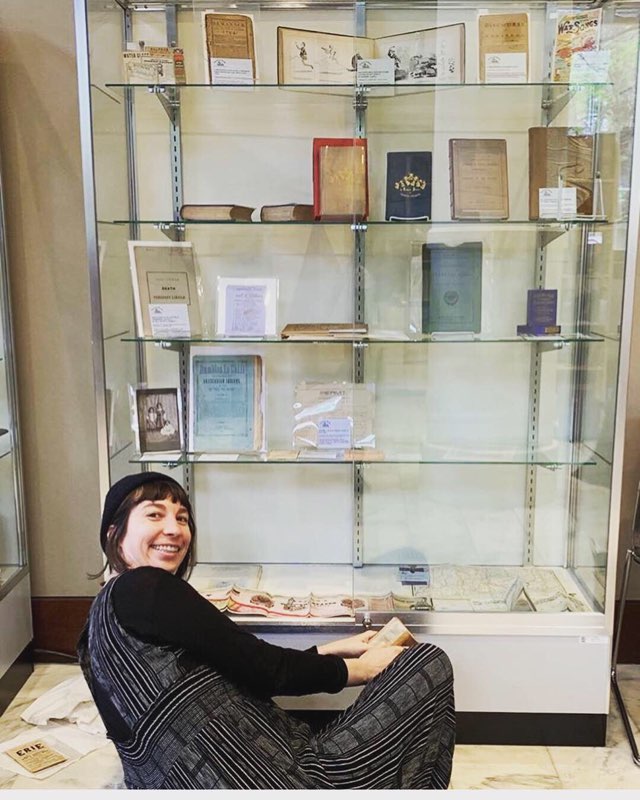
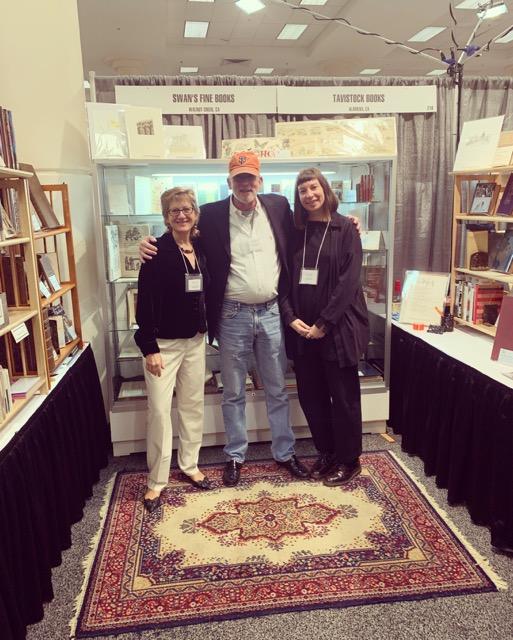
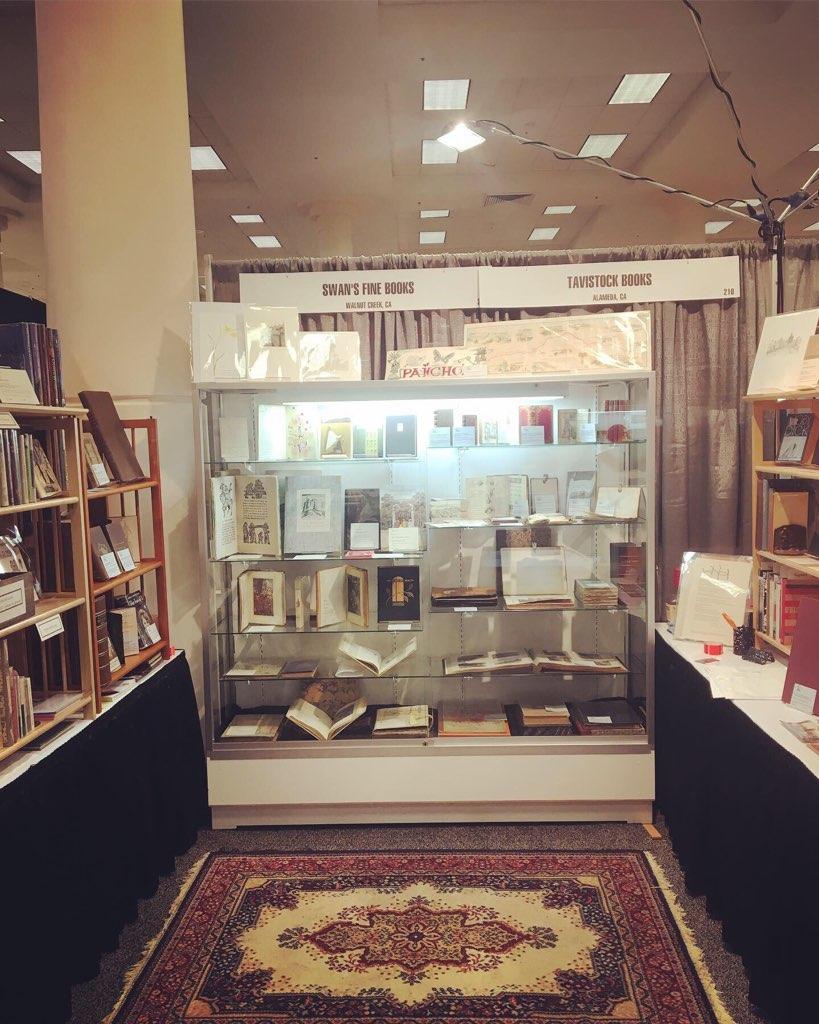
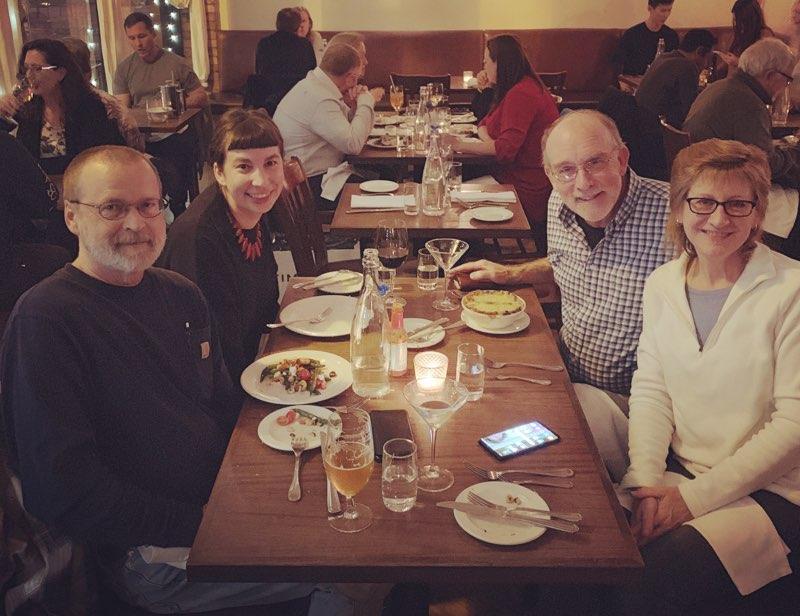
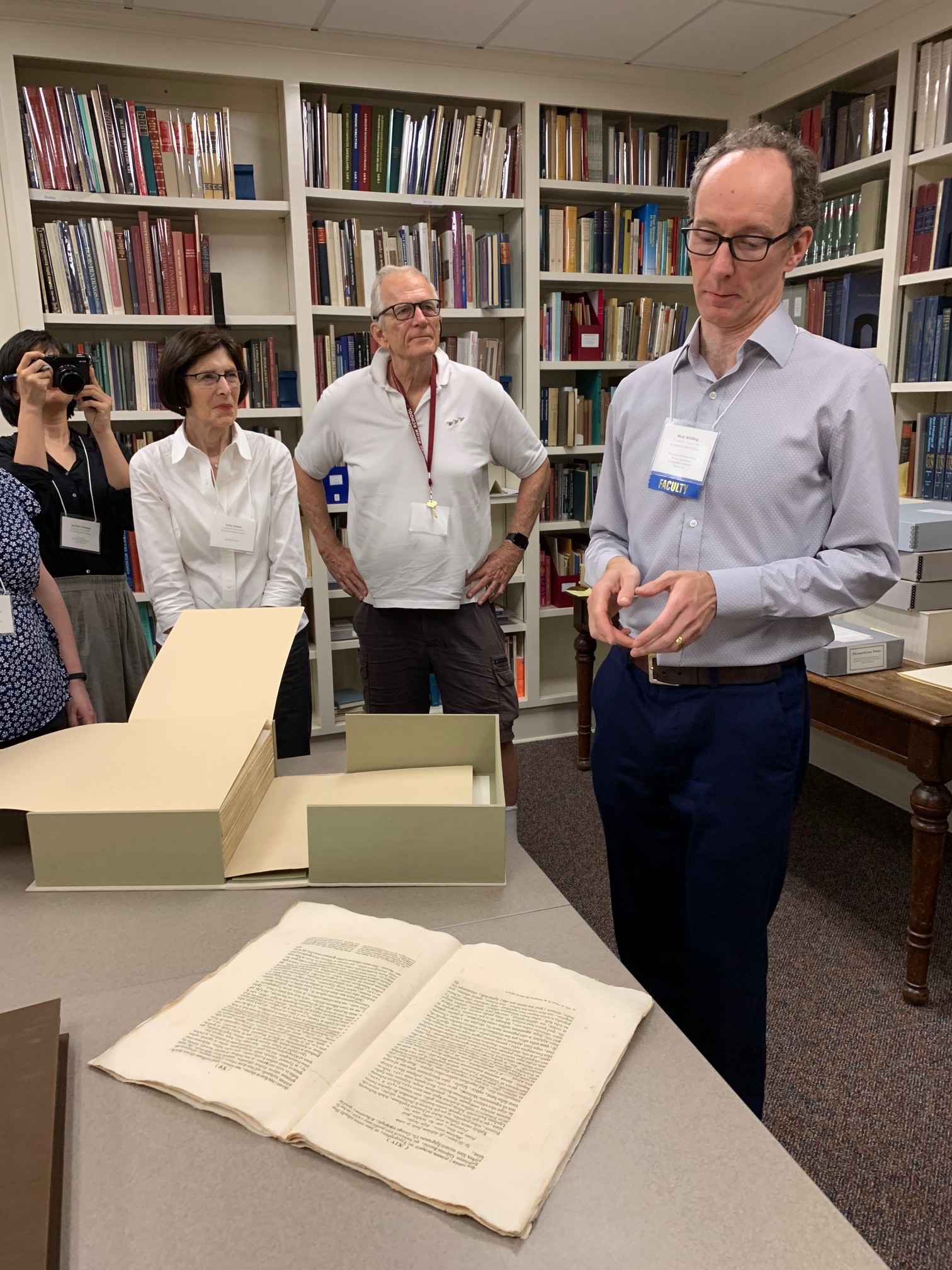
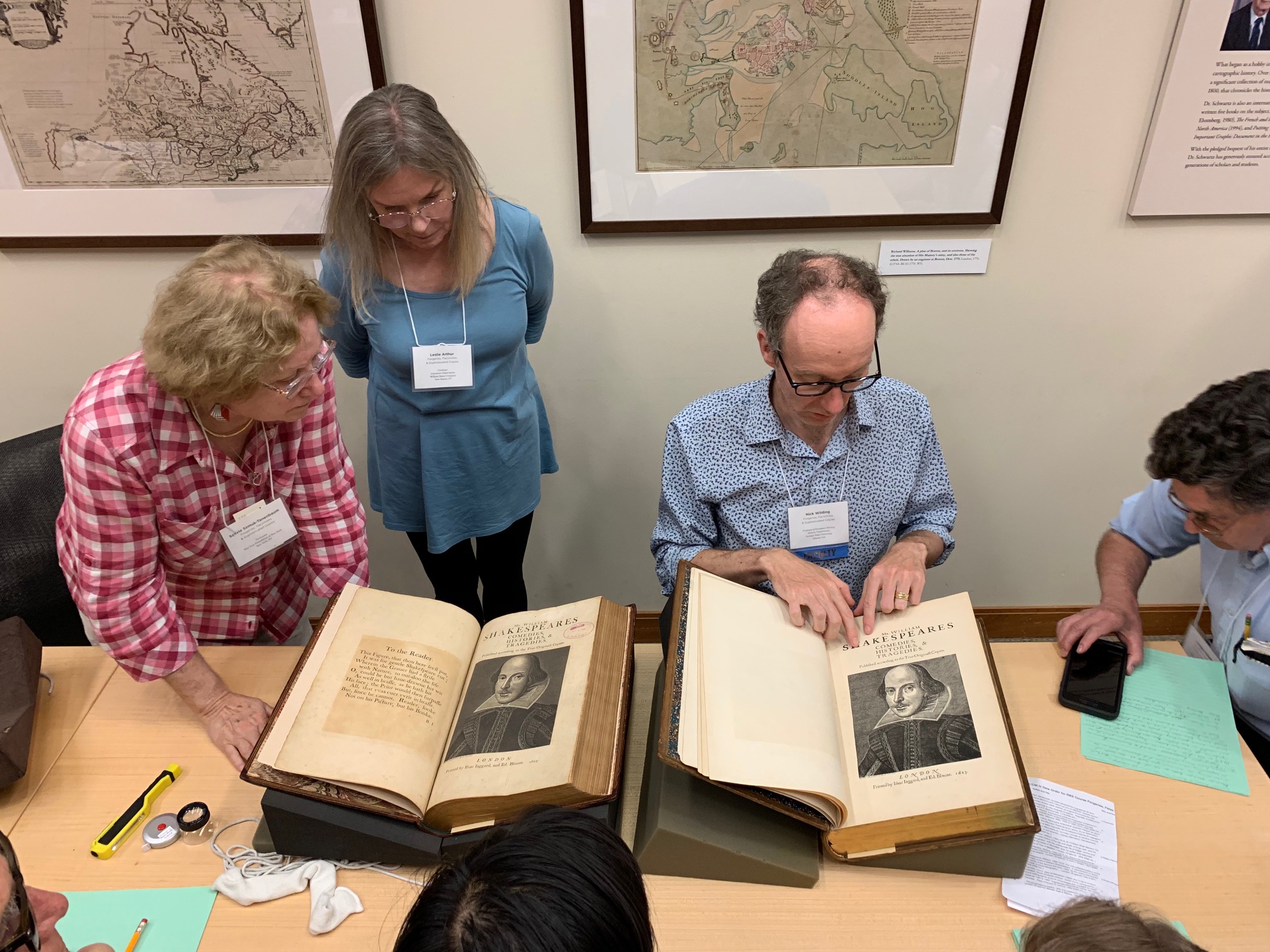
 For those new to RBS, things kick off Sunday afternoon, 5ish. There’s a reception, a Michael Suarez welcome speech & restaurant night. The latter an opportunity for ~ 10 students to share a meal at one of the local ‘Corner’ restaurants, in my case, Lemongrass Thai. Wonderful food, wonderful company!
For those new to RBS, things kick off Sunday afternoon, 5ish. There’s a reception, a Michael Suarez welcome speech & restaurant night. The latter an opportunity for ~ 10 students to share a meal at one of the local ‘Corner’ restaurants, in my case, Lemongrass Thai. Wonderful food, wonderful company!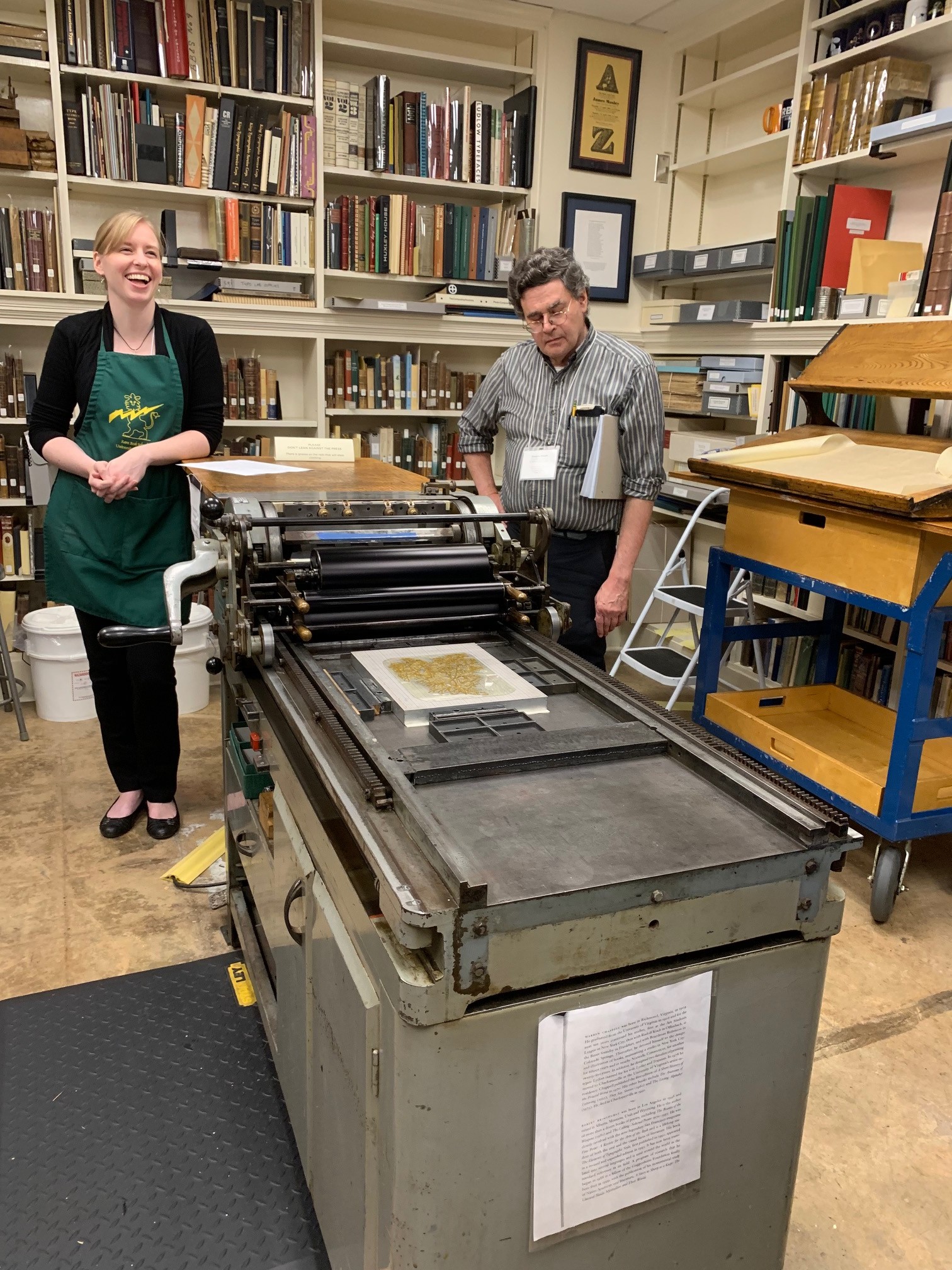
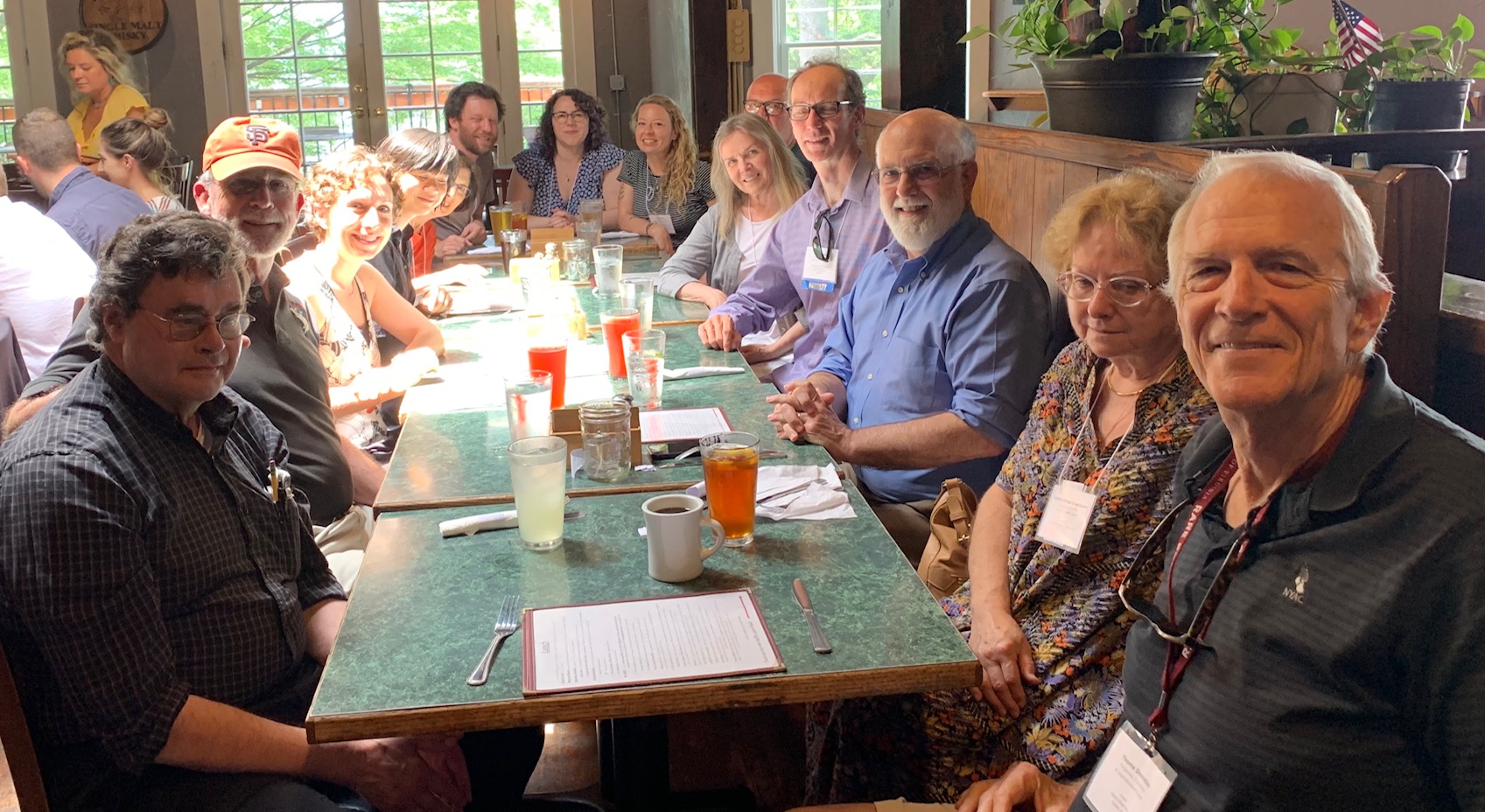
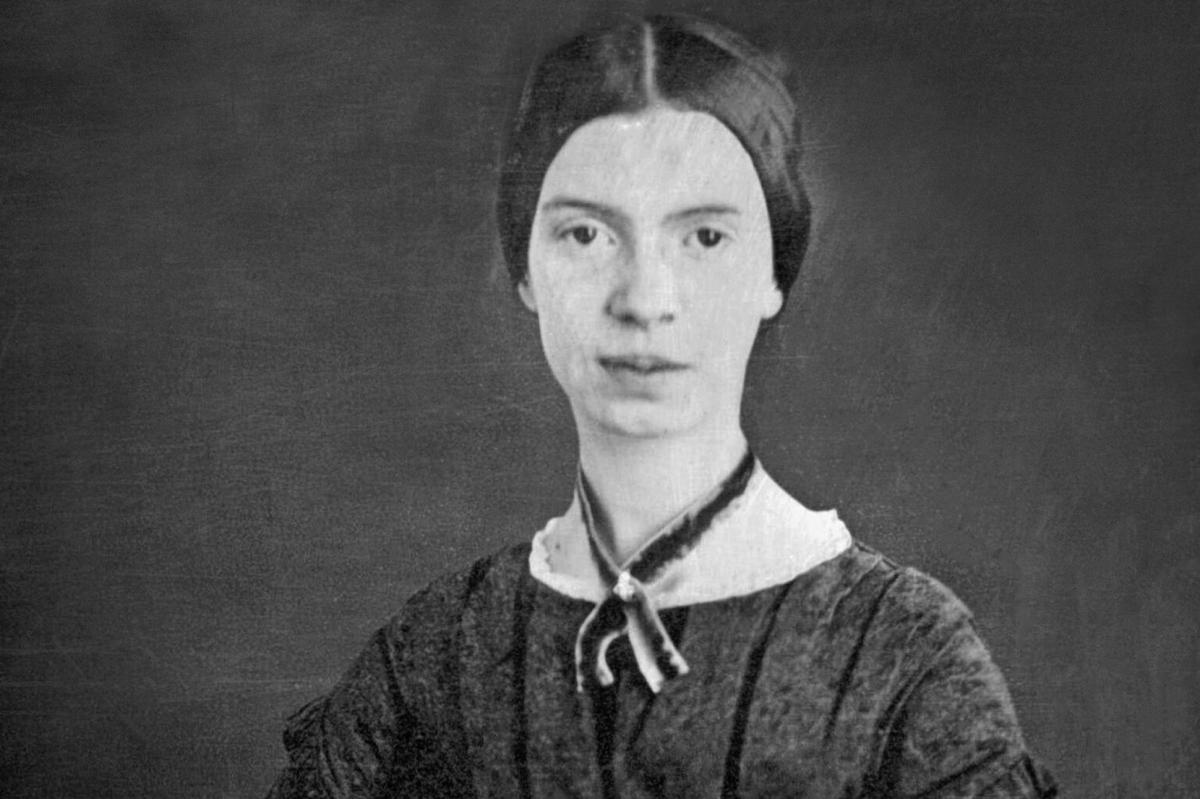
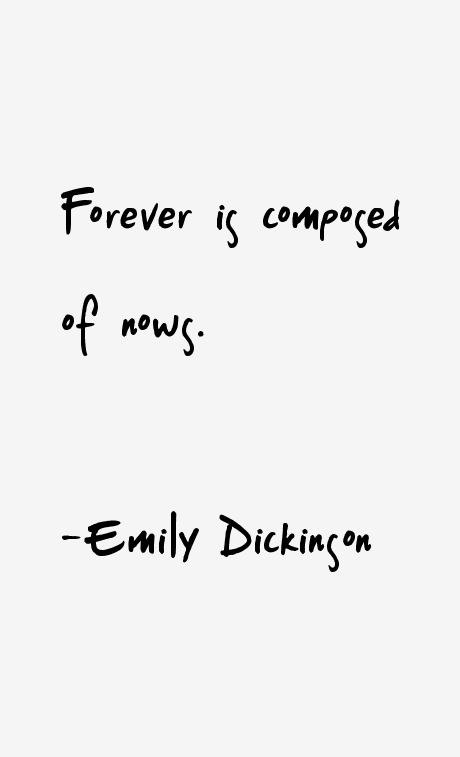 Emily Dickinson was born in Amherst, Massachusetts, on December 10th, 1830. She was the second of three children, with one elder brother named Austin and a younger sister, Lavinia. Her father was not only a lawyer by trade, but a trustee of Amherst College, where his father had been one of the founders of the school. With their background in education, the Dickinson children were given a thorough education for the time, certainly when it came to the two girls. At the age of 10 Emily and her sister began their studies at Amherst Academy, which had begun to allow female students a scant two years before their studies began. Emily remained at the school for seven years, studying math, literature, latin, botany, history, and all manner of respected academia. Upon finishing her studies at the Academy in 1847, Dickinson enrolled in the Mount Holyoke Female Seminary (now Mount Holyoke College). Although the Seminary was only 10 miles from her home, Dickinson only remained at the school for 10 months before returning home – for reasons many have tried to unearth but none can be sure of.
Emily Dickinson was born in Amherst, Massachusetts, on December 10th, 1830. She was the second of three children, with one elder brother named Austin and a younger sister, Lavinia. Her father was not only a lawyer by trade, but a trustee of Amherst College, where his father had been one of the founders of the school. With their background in education, the Dickinson children were given a thorough education for the time, certainly when it came to the two girls. At the age of 10 Emily and her sister began their studies at Amherst Academy, which had begun to allow female students a scant two years before their studies began. Emily remained at the school for seven years, studying math, literature, latin, botany, history, and all manner of respected academia. Upon finishing her studies at the Academy in 1847, Dickinson enrolled in the Mount Holyoke Female Seminary (now Mount Holyoke College). Although the Seminary was only 10 miles from her home, Dickinson only remained at the school for 10 months before returning home – for reasons many have tried to unearth but none can be sure of.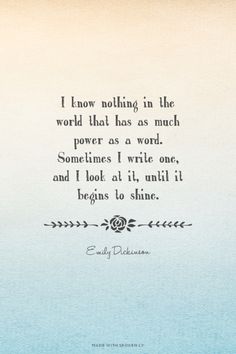 Though throughout her late teens Dickinson seemed to enjoy life in Amherst socially, and was certainly already writing poetry (a family friend Benjamin Franklin Newton hinted in letters before his death in this time that he had hoped to live to see her reach the success he knew possible), by her twenties Emily was already feeling a melancholy pull, exacerbated by her emotions when it came to death, and the deaths of those around her. Her mother’s many chronic illnesses kept Emily often at home, and by the 1860s (Dickinson’s 30s) she had already largely pulled out of the public eye. By her 40s, Dickinson rarely left her room, and preferred to speak with visitors through her door rather than face-to-face. Unbeknownst to any, Dickinson worked tirelessly throughout this period on her poetry, and by the end of her life had amassed a collection of roughly 1,800 poems neatly written in hand sewn journals. That being said, less than one dozen of her poems would be published during her lifetime. The first book of her poetry, published four years after her death on May 15th, 1886 by her sister Lavinia, was a resounding success. In less than two years, eleven editions of the first book had been printed, and her words spread across nations.
Though throughout her late teens Dickinson seemed to enjoy life in Amherst socially, and was certainly already writing poetry (a family friend Benjamin Franklin Newton hinted in letters before his death in this time that he had hoped to live to see her reach the success he knew possible), by her twenties Emily was already feeling a melancholy pull, exacerbated by her emotions when it came to death, and the deaths of those around her. Her mother’s many chronic illnesses kept Emily often at home, and by the 1860s (Dickinson’s 30s) she had already largely pulled out of the public eye. By her 40s, Dickinson rarely left her room, and preferred to speak with visitors through her door rather than face-to-face. Unbeknownst to any, Dickinson worked tirelessly throughout this period on her poetry, and by the end of her life had amassed a collection of roughly 1,800 poems neatly written in hand sewn journals. That being said, less than one dozen of her poems would be published during her lifetime. The first book of her poetry, published four years after her death on May 15th, 1886 by her sister Lavinia, was a resounding success. In less than two years, eleven editions of the first book had been printed, and her words spread across nations.
